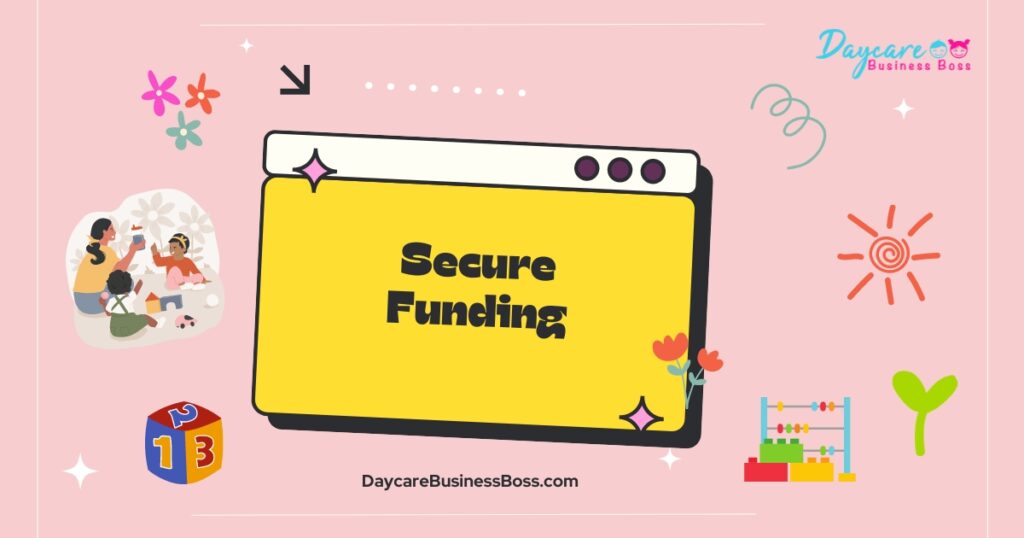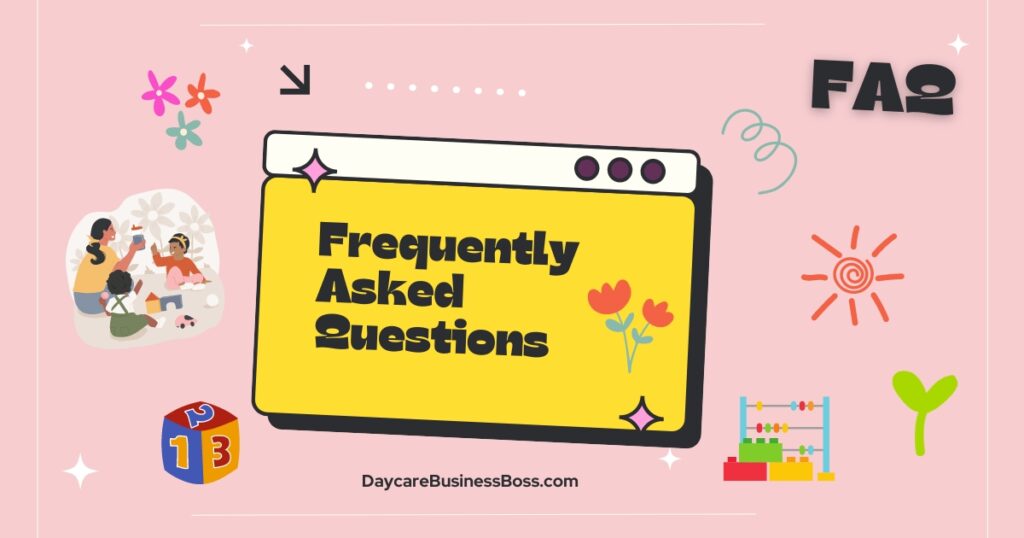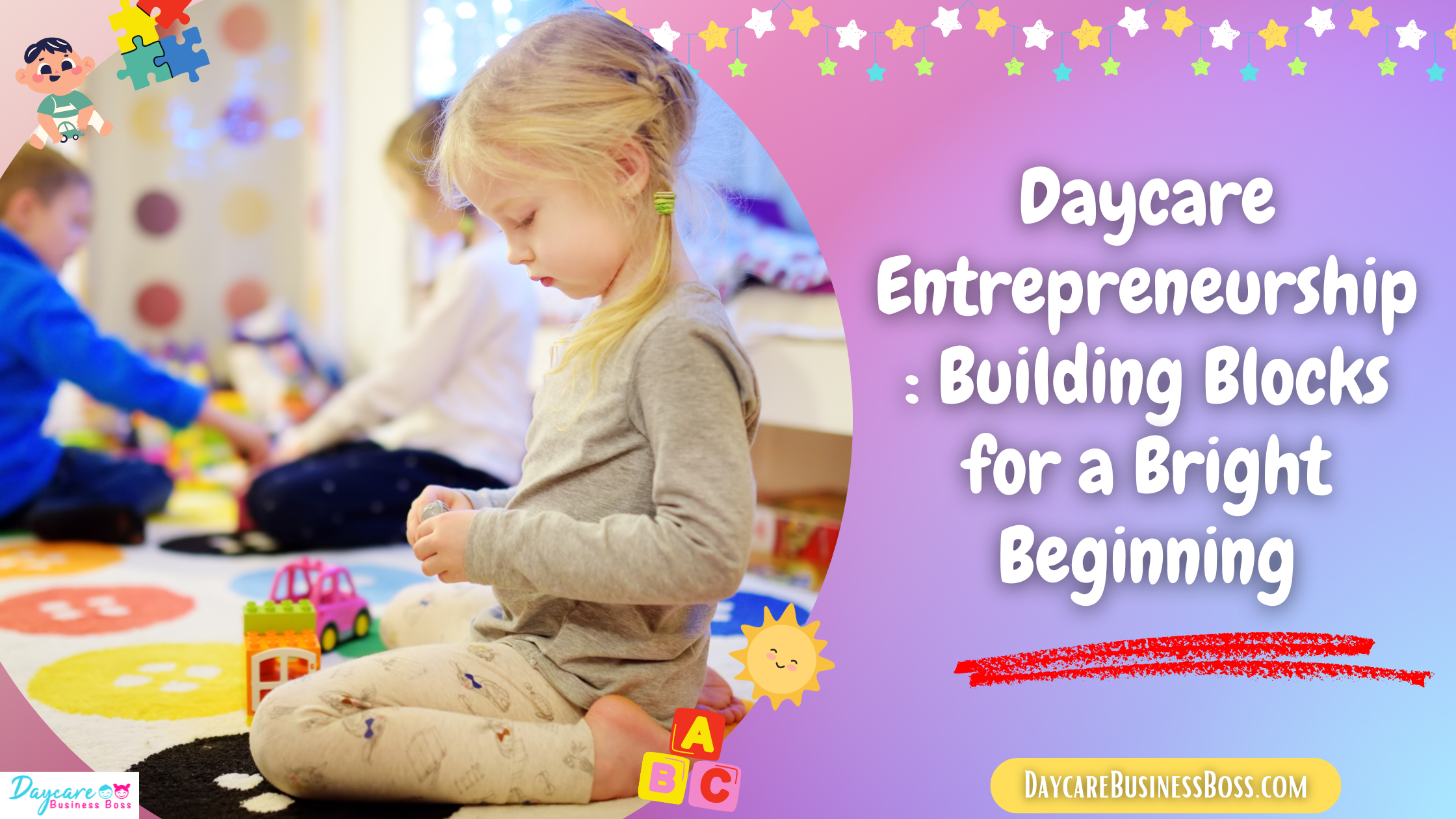Starting a daycare is a journey that promises not just a sense of fulfillment but also a significant impact on the lives of young children and their families. A daycare business does more than just provide childcare; it offers a caring and educational atmosphere in which children can thrive. The route to building an effective daycare, on the other hand, is filled with essential decisions and thorough planning.
To start a daycare, you need to research regulations and licensing, create a detailed business plan, secure funding, set up the facility and obtain the necessary equipment, and hire/train staff, ensuring safety and quality care.
In this article, we will look at the essential factors you should think about and the steps you should take to build a good foundation for your childcare business. Whether you’re motivated by a desire to serve children or an entrepreneurial spirit, this guide will walk you through the complexity of opening a daycare and help you embark on a meaningful and impactful entrepreneurial journey.
Research Regulations and Licensing
The road to establishing your daycare is an exciting one, but it demands careful planning and preparation. The full investigation and understanding of the legislation and licensing requirements that belong to daycare operations in your specific area is one of the critical elements that should not be missed.
Childcare rules differ by location and are implemented to safeguard the safety, well-being, and correct development of the children in your care. These rules include a wide range of topics, including staff-to-child ratios, safety protocols, health and hygiene requirements, instructional programs, and other topics. It is not only a legal need, but also a responsible and ethical obligation, to thoroughly familiarize yourself with these regulations.
One of the key reasons for researching daycare rules is to ensure that your daycare facility is operating within the bounds of the law. Noncompliance with these regulations can result in serious penalties ranging from fines and legal action to the closing of your childcare. You protect your venture from potential dangers by investing time in research and expertise.
Following daycare standards guarantees that the children in your care are in a safe and caring environment. For example, staff-to-child ratios are intended to guarantee that each kid receives appropriate attention and supervision. To prevent accidents, injuries, and the spread of infections among children and employees, safety regulations and health requirements are in place.
Engaging with local authorities, childcare associations, and licensing agencies is vital for gaining detailed insights into the unique legislation applicable to your area. These organizations are excellent sources of knowledge and can help you navigate the regulatory landscape. You can address any issues or concerns you may have and ensure that your childcare satisfies all of the relevant criteria by seeking their advice.
Read more about: Daycare Entrepreneur’s Handbook: Beginner’s Guide to Starting a Daycare Center
Create a Detailed Business Plan
A well-structured and properly prepared business plan is the cornerstone of your enterprise when it comes to developing a gainful daycare service. This document not only acts as a plan for the future of your daycare, but it also works as a valuable instrument for securing finance, attracting investors, and leading your business toward growth.
A clear definition of your daycare’s mission and vision should be at the heart of your business plan. These guiding principles capture the core of what your daycare intends to accomplish and how it wishes to touch the lives of children and families. A clear goal and vision establish the tone for your company’s culture and direction, affecting decision-making at all levels.
Including information about your target market in your business plan is a strategic step that exhibits your knowledge of the industry and potential customers. By identifying your ideal customers – whether they are working parents, single parents, or families looking for certain educational techniques – you can effectively design your services to match their unique needs and preferences.
Your business plan should contain a detailed summary of the programs, activities, and care options that your daycare will provide in terms of services offered. Whether you provide specialized educational curricula, extracurricular activities, or flexible scheduling, properly articulating your offers gives prospective parents a concrete notion of what to expect and distinguishes you in a competitive market.
The unique selling characteristics (USPs) of your daycare are critical components that set you apart from other childcare providers. This is where you may highlight what makes your daycare unique, whether it’s your experienced staff, innovative teaching methods, cutting-edge facilities, or a commitment to eco-friendly practices. Highlighting your unique selling points (USPs) gives parents a compelling reason to choose your childcare above others.
The pricing strategy is an essential component of your business plan. It is a tough endeavor to balance the budget with the level of service you deliver. Explain your pricing structure and underline the benefits that parents and children will receive from the investment. Transparently addressing expenses and benefits might reassure potential clients.
A detailed marketing campaign is required. Your marketing strategy details how you want to reach out to and recruit parents to your daycare business. This can include online and offline initiatives, social media presence, open houses, school collaborations, and other activities. A well-thought-out marketing plan indicates your dedication to aggressively growing your business and catching the attention of your target audience.
Secure Funding

The quest of creating and maintaining a daycare is predicated on a fundamental component: getting adequate money. This financial foundation is critical for navigating the complex landscape of starting and running a daycare business. To embark on this road with confidence, rigorous planning, and financial avenue exploration are essential.
It is critical to calculate the initial investment requirements thoroughly at the outset. This entails a thorough examination of the costs associated with various aspects of the daycare operation. Every cost must be tracked, from the development of the facility through the purchase of necessary equipment such as play materials, furniture, and learning tools. Proper financial estimates need to take into account employee salaries as well as operating expenses such as utilities, insurance, and administrative charges.
Prospective daycare entrepreneurs have a variety of finance alternatives accessible to them. Personal savings are a practical and self-sufficient option, especially for people who have a sizable financial cushion. However, given the large money necessary, many businesses seek finance from outside sources.
Loans are a popular option for many entrepreneurs, with several financial institutions providing starting loans tailored to their needs. When considering this course, it is critical to carefully analyze interest rates, repayment terms, and collateral requirements. Grants from government agencies, commercial groups, or philanthropic foundations can also be a valuable source of funding. These awards frequently have strict qualifying requirements and application processes, necessitating extensive research and personalized submissions.
Another option is to approach possible investors. Daycare firms with high growth potential and well-defined plans entice investors. In this quest, a comprehensive and well-structured business strategy is a vital asset. Your business plan not only explains your daycare’s vision, offerings, and market distinctiveness, but it also includes financial predictions and long-term sustainability measures. A well-written business plan instills trust in potential investors or lenders by displaying your knowledge of the industry, target market, and proactive approach to potential difficulties.
Investors or lenders want proof of your daycare’s feasibility and prospective growth. They want to see a clear revenue generation strategy, growth estimates, and a long-term business model. You present a compelling case for a partnership by methodically describing your financial forecasts, spending control techniques, and contingency preparations in your business plan.
Set Up the Facility and Obtain Necessary Equipment
The physical environment of your daycare is a multidimensional activity that is critical in creating a location where children can thrive. Every factor, from location to layout, equipment to designated spaces, helps to create an environment that promotes learning, development, and safety.
The first step in starting your daycare is to choose a good site. Accessibility is an important issue; a site that is easily accessible to parents and caregivers ensures convenience. Simultaneously, zoning laws must be followed to guarantee that your daycare runs within legal boundaries. Thorough research and engagement with local authorities will assist you in identifying viable locations and navigating any regulatory obstacles.
Your daycare’s interior design has the potential to substantially alter the children’s experience. To optimize the space for varied tasks, thoughtful design is essential. Having open areas for group activities, comfy places for reading and solo play, and separate locations for quiet time and meals helps to create a varied atmosphere. However, kid safety should be the priority throughout the design process. Furniture placement, mobility space, and optimum ventilation are all important factors in creating a safe and inviting environment.
It is critical to stock your daycare with age-appropriate toys, educational materials, and furniture. These resources are more than simply tools for play and learning; they allow youngsters to express their creativity while also developing cognitive and motor abilities. Diverse resources that cater to different age groups and interests guarantee that all children in your care have a well-rounded experience.
Creating specialized places within the daycare aids in the maintenance of a structured routine and the facilitation of varied activities. Designating separate locations for play, learning, sleep time, and meals assists youngsters in seamlessly transitioning between different parts of their day. These areas should also be considered safe, with safeguards in place to prevent accidents or injury. In this aspect, adequate monitoring, childproofing measures, and pleasant furnishings are critical.
Read more about: Daycare Entrepreneur’s Handbook: Beginner’s Guide to Starting a Daycare Center
Hire and Train Staff, Ensuring Safety and Quality Care
The function of staff selection and training is a crucial thread in the rich fabric of a daycare’s growth. People who engage with and care for children daily have an important role in molding their experiences and creating a safe, caring environment. Every stage, from selection to training and continuous development, is crucial in upholding the high levels of care and safety that parents expect.
When constructing your team, the most important factor to consider is finding people whose hearts resonate with the world of children. A real enthusiasm for dealing with young brains establishes the groundwork for meaningful connections and powerful learning experiences. This desire should be accompanied by the requisite qualifications and experience that correspond to the daycare’s jobs and responsibilities.
Given the sensitive nature of childcare, extensive background checks and reference checks are a must. These safeguards reassure parents that the people entrusted with their children’s care are dependable and trustworthy. Such vigilance in screening contributes to the creation of a safe environment in which children can thrive without compromise.
The creation of comprehensive training programs is also critical. Childcare practices, safety standards, emergency response, and effective communication skills should all be covered in these programs. Proficiency in these areas not only assures the children’s well-being but also prepares personnel to manage a range of situations with skill and composure.
The value of continuing professional growth cannot be emphasized. The daycare landscape is constantly changing, and staying up to date on the most recent best practices, instructional approaches, and safety precautions is critical. Investing in staff’s ongoing learning strengthens their ability to deliver high-quality care that is in line with the most recent advances in child development.
A well-trained and motivated staff leads to better interactions with parents. Staff with effective communication skills can interact meaningfully with parents, offering insights about their child’s progress, addressing concerns, and collaborating on their development. These encounters add to the childcare and parents’ sense of collaboration and trust.
Frequently Asked Questions

What are the most important regulations to consider when opening a daycare?
Starting a daycare requires you to navigate a slew of rules to secure the safety and well-being of the children in your care. personnel-to-child ratios, health and safety measures, background checks for personnel, licensing requirements, and other criteria may be included in regulations. To operate lawfully and deliver quality care, it is critical to research and understand the legislation relevant to your locality.
How can I get finance for my daycare center?
There are several ways to secure money for your daycare business. Personal savings, small company loans, grants or subsidies for childcare services, and even partnering with investors are all options. A well-developed business plan that details your financial requirements and projections will assist you in making a compelling argument to potential lenders or investors.
What characteristics should I look for when recruiting daycare staff?
Prioritize those with a real passion for working with children when selecting daycare personnel. Look for qualifications including early childhood education degrees, applicable certificates, and childcare experience. To ensure safety, conduct extensive background checks and reference checks. Look for applicants with great communication skills, patience, inventiveness, and the capacity to deal with emergencies efficiently. Maintaining a high standard of care also necessitates ongoing training and professional development opportunities.
To learn more on how to start your own daycare checkout my startup documents here.
The information provided by DaycareBusinessBoss.com (“The Site”) is for general informational purposes only. All information on the Site is provided in good faith, however, we make no representation or warranty of any kind, express or implied, regarding the accuracy, adequacy, validity, reliability, availability or completeness of any information on the Site. Under no circumstance shall we have any liability to you for any loss or damage of any kind incurred as a result of the use of the Site or Reliance on any information provided on the Site. Your use of the Site and your reliance on any information on the Site is solely at your own risk.
This blog post is for educational purposes only and does not constitute legal advice. Please consult a legal expert to address your specific needs. Terms and Conditions. (https://daycarebusinessboss.com/terms-conditions/)

Meet Shawn Chun: Entrepreneur and Childcare Business Fan.
I’m a happy individual who happens to be an entrepreneur. I have owned several types of businesses in my life from a coffee shop to an import and export business to an online review business plus a few more and now I create online daycare business resources for those interested in starting new ventures. It’s demanding work but I love it. I do it for those passionate about their business and their goals. That’s why when I meet a childcare business owner, I see myself. I know how hard the struggle is to retain clients, find good employees and keep the business growing all while trying to stay competitive.
That’s why I created Daycare Business Boss: I want to help childcare business owners like you build a thriving business that brings you endless joy and supports your ideal lifestyle.

